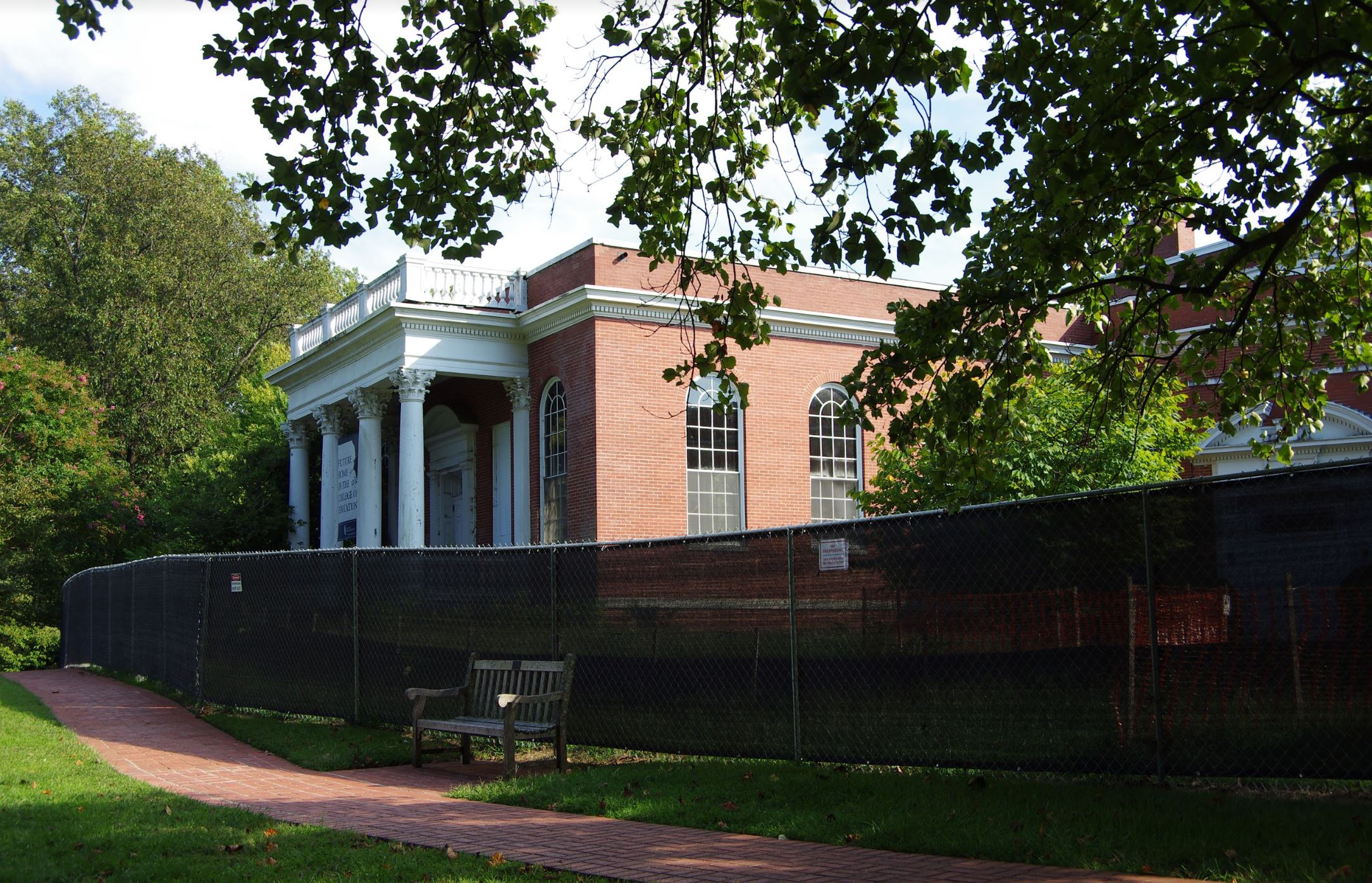$3 million shortfall halts Seacobeck construction
4 min read
Construction cannot proceed on Seacobeck Hall until an additional $3 million in funding is secured. / Noah Strobel
By ABIGAIL BUCHHOLZ and KATE SELTZER
News Editors
Renovations to Seacobeck Hall came to a halt when bids from state-approved contractors for the construction work came back $3 million more than expected, according to UMW President Troy Paino.
Paino attributed the higher prices to market escalation as a result of a smaller than usual pool of bidders and recent tariffs that have driven up the cost of steel and other supplies.
“On most of the bids, only a single bid came in because of the economy and a lot of construction that’s going on around the state,” he said. “This is happening across the state, and there are several other construction projects that have experienced similar market escalation as a result of these forces.”
The university is hoping to hear an update in the coming weeks about whether the state government will allocate the remaining funds so construction can resume immediately. Alternatively, the school will again attempt to secure funding through the Virginia General Assembly when the legislature is in session in the winter, with the hope of beginning construction in the spring of 2020.
“The cost of the project will just continue to go up the longer we wait,” Paino said. “In order to get the project done in a timely fashion and in the most cost effective way possible, we feel very strongly that we should proceed with construction sooner rather than later and hopefully we can do that this fall.”
Paino is hopeful that UMW will receive the necessary funding because the College of Education’s new home in Seacobeck Hall is in part a response to the commonwealth’s teacher shortage.
“This is an important piece of that work, and I think the people down in Richmond, legislators and those in the governor’s office, are very aware of that need and very supportive,” he said.
In response to the $3 million shortfall, the Department of General Services directed the school to put the renovation plans through a process of “value engineering” to see where costs could be reduced.
“It was very painful because we had to cut some things out of the project that people are very much counting on, including new space for our Office of Disability Resources,” Paino said. He said that the value-engineered plan, which reduced renovation costs by $2 million, is the worst-case scenario and would only be considered in the event that the General Assembly denies the request for funding.
“We probably won’t be going back to Seacobeck to do a renovation for another 30 years, so this is a generational endeavor,” he said. “I would rather us wait and get the appropriate funding and do it right than to do it quickly and on the cheap and cut some things out of it that we’ll regret, not just for short term but really over a generation.”
The delay to the College of Education’s construction was met with disappointment but not surprise from some students.
“I was a little frustrated that the College of Education wasn’t going to open on time, but to some extent I wasn’t super surprised, because a lot of our projects on campus have been delayed,” said Ashely Dimino, a sophomore history major and student in the College of Education.
Currently, many classes required for the College of Education are held in Trinkle, which has led to some concerns about overcrowding.
“I can completely understand why some people feel like we should have our own separate building, seeing as [there are] already so many departments kind of crammed into Trinkle,” said Henry Wharton, a sophomore history major in the College of Education.
Wharton also said that one of his education classes in Trinkle had to switch rooms last minute because the room they had originally been assigned to was too small.
“I am not sure if [Seacobeck] is going to open before I graduate, which means we’re in Trinkle for probably the rest of my time at UMW, which is manageable, but it would be nice to have our own space because there are so many majors crammed into that building,” said Dimino.
Melina Furches, a sophomore art major in the College of Education, expressed similar concerns.
“I was pretty excited that we’d be having a building before I graduated, and now it’s not working,” she said.
As the university waits for more funding, Wharton says he is not worried about the impact on his education.
“We still have the professors and we still have places to do our work. Most of our work is being done outside of the school anyway, we’re going to schools, practicums and things like that. So most of our general learning experience-wise is done off campus,” he said.
“I’m hoping that they’ll keep us updated on how UMW is trying to get the money and also what they project their opening date to be,” said Furches. “I would really like it to open before I graduate, and I’d just like to be kept updated if it’s going to happen especially before housing next year.”


